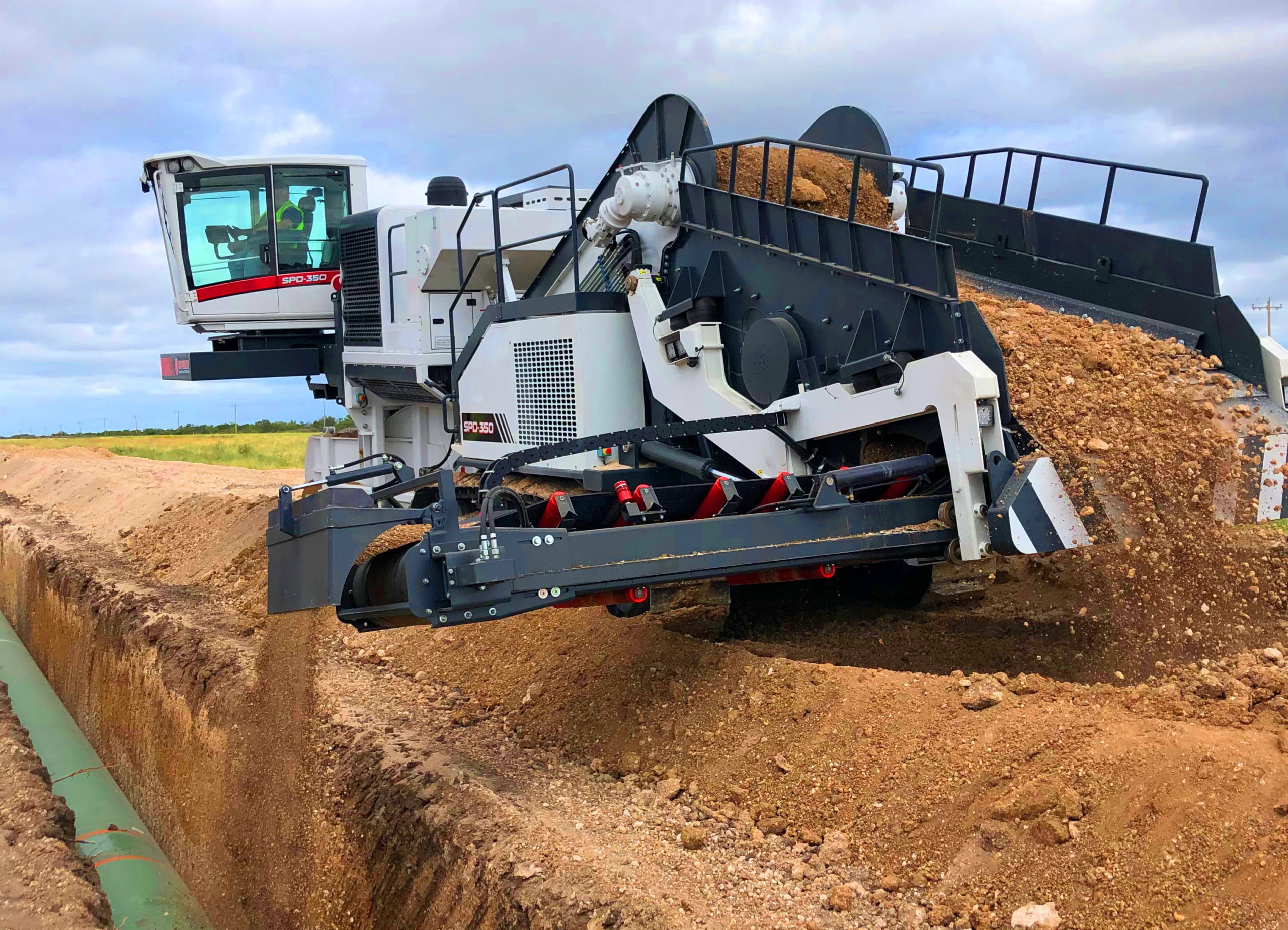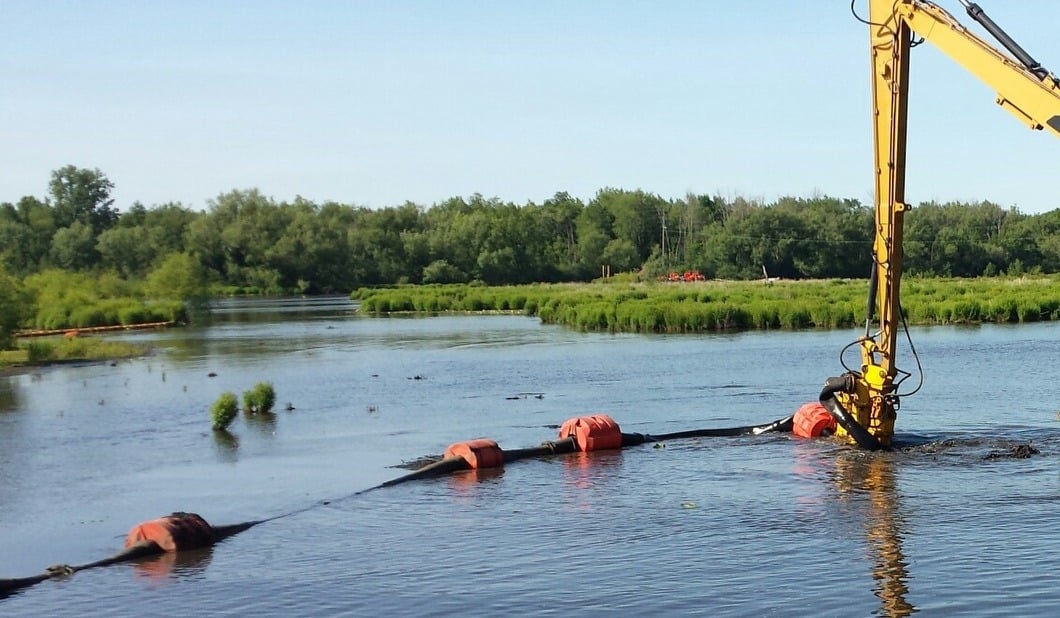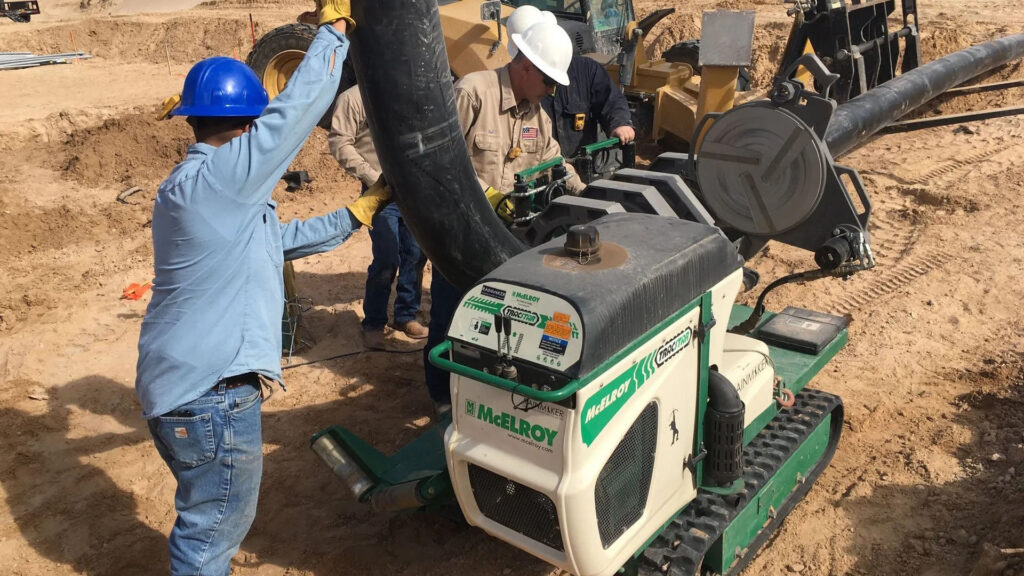A Comprehensive Guide to the Various Types of Oil Field Equipment and Pipeline Equipment Available
The oil and gas industry depends greatly on specific devices for reliable removal and transport. Various sorts of equipment, from drilling rigs to tank, play important functions in this complicated process. Each piece of devices offers distinct functions that contribute to general operational success. Recognizing these elements is necessary for anyone entailed in the industry. As the industry evolves, so too do the technologies that sustain it. What improvements are on the perspective?

Drilling Rigs: The Backbone of Oil Exploration
Drilling rigs act as the crucial equipment in the domain of oil exploration, making it possible for companies to accessibility hydrocarbon books hidden deep below the Planet's surface area. These rigs can be found in different types, consisting of land rigs, offshore rigs, and mobile devices, each designed to run in specific atmospheres. Outfitted with sophisticated modern technology, drilling rigs can pass through geological developments with precision, making certain efficient resource removal. The architectural integrity and operational abilities of these rigs are crucial, as they have to withstand extreme problems and substantial stress. The selection of an exploration rig affects the general job price and timeline, making it an essential factor to consider for oil companies seeking to maximize their exploration initiatives and make the most of performance in their procedures.
Pumps: Important for Liquid Activity
In the oil extraction process, the function of pumps is significant, helping with the activity of fluids throughout numerous stages of production. Pumps are vital for moving petroleum, water, and various other fluids from below ground reservoirs to the surface and then through pipes to refineries. They can be found in numerous kinds, including centrifugal, favorable displacement, and submersible pumps, each serving details purposes based on the liquid characteristics and functional needs. Centrifugal pumps are frequently made use of for their performance in high-flow applications, while positive displacement pumps master dealing with viscous fluids. The choice of pump impacts general performance, operational security, and upkeep expenses. Appropriate option and maintenance of pumps are important for maximizing manufacturing and lessening downtime in oil field operations.
Shutoffs: Controlling Circulation and Pressure

Shutoffs play an essential role in handling the circulation and pressure of liquids within oil fields and pipelines. Various kinds of shutoffs serve distinct applications, each designed to accomplish details features basic for reliable procedure - Superior Oilfield Rentals. Recognizing the characteristics and uses these shutoffs is essential for enhancing system efficiency and safety and security
Kinds of Valves
Important components in oil area procedures, shutoffs play an essential function in managing the circulation and stress of liquids within pipes and devices. Different sorts of valves are made use of to meet the varied needs of oil and gas manufacturing. Common kinds include gate valves, which offer a straight-line circulation and marginal stress decline; globe shutoffs, recognized for their strangling capacities; and round shutoffs, acknowledged for their fast on/off control. In addition, check shutoffs prevent backflow, while butterfly shutoffs offer a lightweight solution for regulating flow. Each valve kind is made with details products and configurations to endure the severe problems commonly discovered in oil fields, ensuring integrity and effectiveness in operations. Comprehending these kinds is essential for efficient system monitoring.
Valve Applications and Features
While different kinds of valves serve distinct purposes, their main applications focus on controlling circulation and stress within oil and gas systems. Valves such as gate, world, and sphere valves control liquid motion, guaranteeing peak performance and security. Entrance shutoffs are typically used for on/off control, giving very little flow resistance. Globe valves, on the other hand, offer specific circulation regulation, making them ideal for throttling applications. Round valves are favored for their fast operation and limited sealing capacities. Furthermore, pressure safety valve are critical for preventing system overpressure, securing devices stability. On the whole, the appropriate option and application of shutoffs boost functional effectiveness, making certain the reliable transport of oil and gas with pipelines and handling facilities.
Compressors: Enhancing Gas Transport
Compressors play a critical duty in the reliable transportation of natural gas, making sure that it relocates efficiently via pipes over fars away. These gadgets boost the stress of gas, enabling it to get rid of rubbing and altitude changes within the pipeline system. Furthermore, compressors assist in the harmonizing of supply and need, suiting fluctuations in consumption and production rates. Different kinds of compressors are utilized in the market, consisting of centrifugal, reciprocating, and rotating screw compressors, each offering distinctive benefits based upon the functional needs. Normal upkeep of these compressors is necessary to take full advantage of effectiveness and lessen downtime, ultimately adding to a dependable gas transport network. Their important feature underscores the value of compressors in the total oil and gas facilities.
Storage Tanks: Safe and Effective Fluid Monitoring
Efficient transportation of gas counts on different sustaining systems, one of which is the appropriate administration of tank. These storage tanks play an important duty in securely consisting of fluids, ensuring that functional performance is preserved while reducing ecological dangers. Constructed from sturdy products, they are developed to withstand high stress and corrosive components. Appropriately sized and tactically located, tank promote the smooth flow of gas and various other fluids, avoiding bottlenecks in supply chains. Normal upkeep and surveillance are imperative to spot leaks or architectural problems, promoting safety and conformity with governing requirements. Ultimately, the reliable monitoring of tank is critical for the total stability and reliability of the oil and gas sector's fluid handling systems.
Pipeline Systems: Framework for Transport
Pipeline systems act as the foundation of the oil and gas sector, assisting in the efficient transportation of hydrocarbons over vast distances. These systems are composed of different parts, consisting of pipelines, valves, pumps, and compressors, all thoroughly designed to guarantee seamless circulation. The products used in pipeline construction, frequently steel or high-density polyethylene, are selected for sturdiness and resistance to rust. check here Pipeline networks can extend throughout land and water, linking manufacturing websites to refineries and warehouse. Furthermore, progressed innovation makes it possible for real-time tracking of flow rates and stress degrees, improving operational efficiency. The strategic placement of these pipes lessens environmental influence while optimizing source accessibility, therefore playing an essential duty in meeting energy needs globally.
Safety Equipment: Making Sure Employee and Environmental Management
The operation of pipeline systems, while crucial for power transport, likewise provides significant safety challenges for employees and the setting. Safety equipment plays a substantial duty in alleviating these dangers. Personal safety devices (PPE) such as safety helmets, gloves, and non-slip footwear safeguards workers from physical hazards. Additionally, gas detection systems keep track of for leaks, making certain that unsafe substances do not posture a danger to personnel or the bordering environment. Emergency closure systems are imperative for swiftly stopping procedures during a situation, avoiding possible catastrophes. Spill control products, including absorbents and barriers, are fundamental for decreasing ecological influence. On the whole, spending in all-encompassing safety equipment is crucial for maintaining functional stability and protecting both employees and the atmosphere in the oil and gas industry.

Often Asked Concerns
Exactly how Do I Select the Right Oil Field Equipment for My Job?
Selecting the ideal oil field equipment involves assessing project specifications, budget constraints, and functional needs. Take into consideration factors such as devices dependability, compatibility with existing systems, and the provider's credibility to guarantee peak efficiency and safety and security.
What Are the Upkeep Needs for Oil Field Equipment?
Upkeep demands for oil field tools consist of routine evaluations, lubrication, and prompt fixings. Operators must likewise stick to manufacturer guidelines, monitor performance metrics, and guarantee compliance with security guidelines to improve long life and performance.

Exactly How Can I Ensure Conformity With Environmental Laws?
To ensure conformity with ecological guidelines, companies have to conduct routine audits, carry out ideal techniques, purchase training, keep proper paperwork, and remain updated on legislation (Superior Rentals fusion machines). Partnership with environmental firms can also improve adherence to laws
What Is the Typical Lifespan of Pipeline Equipment?
The ordinary lifespan of pipeline equipment commonly varies from 20 to half a century, relying on factors such as worldly high quality, environmental problems, and maintenance techniques. Normal assessments can considerably influence long life and functional effectiveness.
Just how Do I Securely Transport Oil Field Equipment to Remote Locations?
Carrying oil area equipment to remote locations calls for mindful planning, consisting of course evaluation, securing authorizations, utilizing appropriate lorries, and making certain security protocols are adhered to. Proper training and communication among teams are crucial for successful transportation.